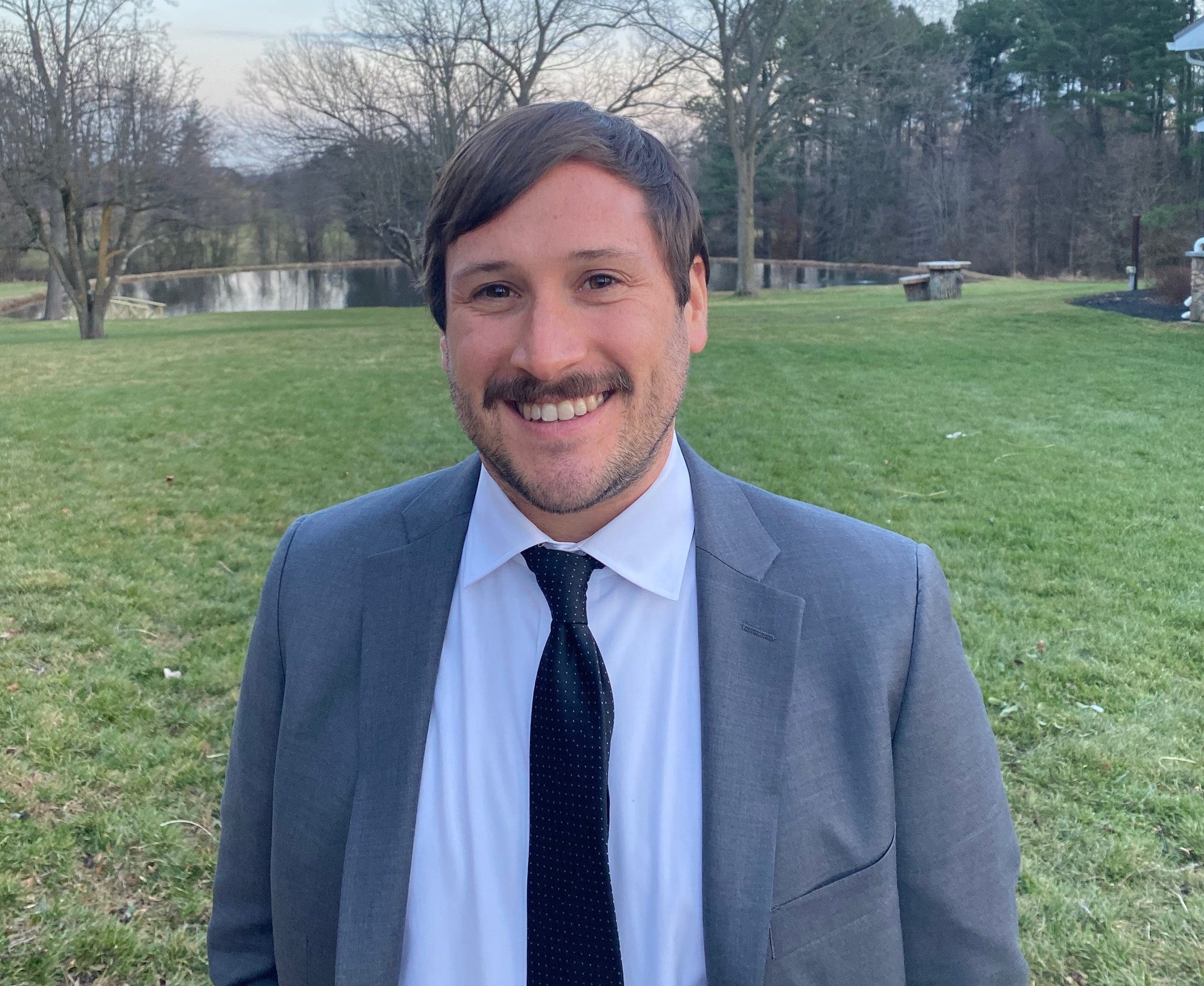CRISIS IN KENSINGTON: Opioids hit Philadelphia like an atomic bomb. This man is documenting the fallout
Frank Rodriguez suffered in a Philadelphia open-air drug market. Now he's looking to humanize addicts.
Crisis in Kensington: Documenting America’s largest open-air drug market
Frank Rodriguez sold heroin for years before himself becoming an addict. Six years clean, he now aims to humanize addicts in Philadelphia's Kensington neighborhood.
This is the first story in a series about the open-air drug market in Kensington.
PHILADELPHIA – Frank Rodriguez was cutting hair in Kensington when he noticed two people who looked out of place.
He was more than familiar with the Philadelphia neighborhood. After all, it was where he spent years selling drugs before he got addicted himself.
The Brooklyn native looked around and tried to see it through the couple’s eyes.
"Couple of feet in front of them, they see one guy shooting another guy up in the neck," Rodriguez recalled. "They see another woman using the bathroom on park steps."
WATCH: RECOVERING ADDICT DESCRIBES HORRORS OF OPEN-AIR DRUG MARKET
WATCH MORE FOX NEWS DIGITAL ORIGINALS HERE
"They see another guy laying face down with his pants down, nodding off. They see people literally laying in the gutter, smoking crack out in the open, shooting up out in the open," he continued. "This was summertime, so you're seeing all the sores. You're seeing literally holes in people's arms and people's legs."
The couple, it turned out, was from Lebanon, Pennsylvania, a small city about two hours from Kensington. They’d never heard of the neighborhood, notorious as an open-air drug market and for its drug-related violence.
It’s a neighborhood one addict called a "warzone." Another described it as "hell. Literally hell."
The Lebanon couple, Rodriguez said, was there looking for their son.
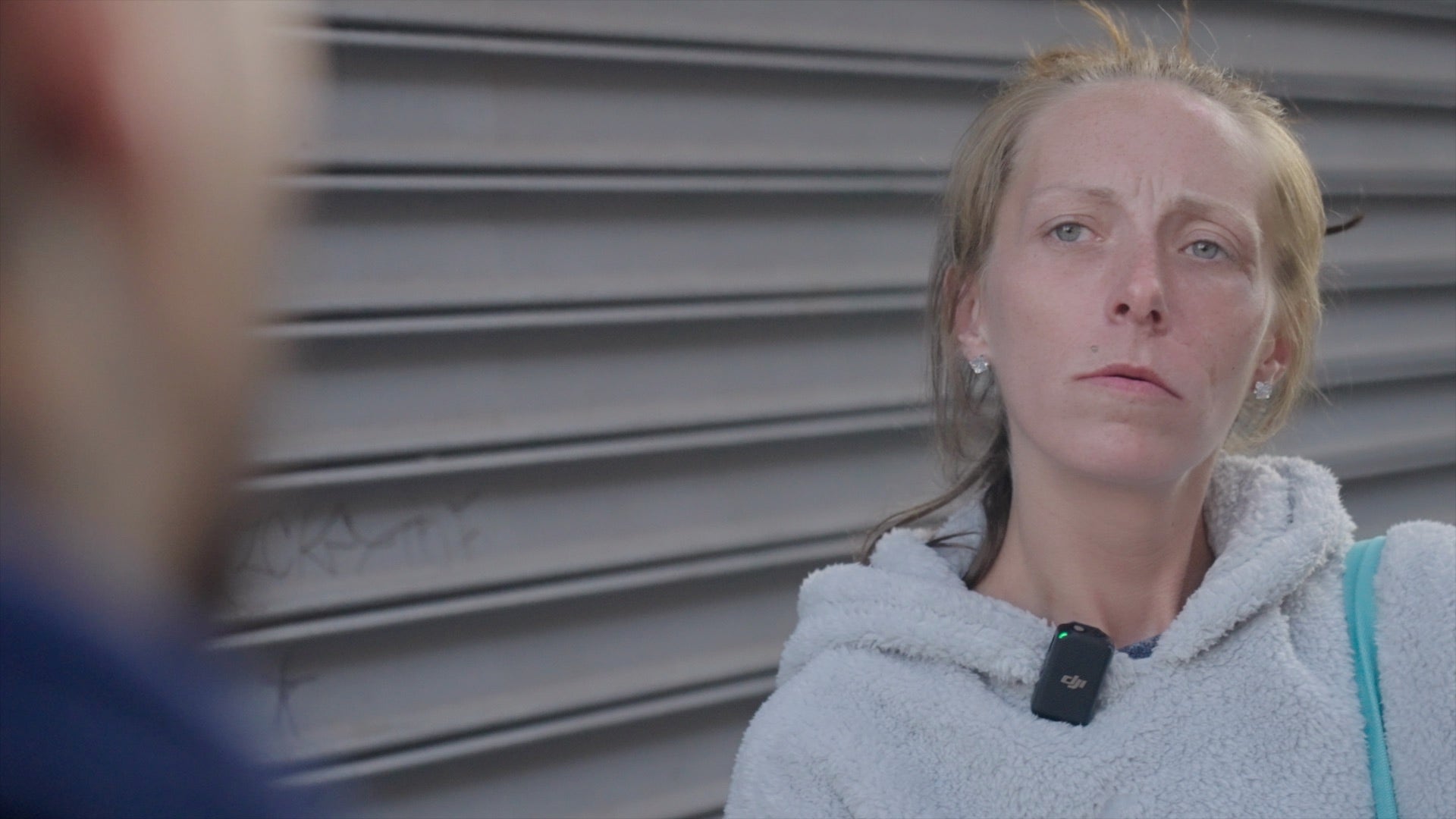
A drug addict describes Kensington — a Philadelphia neighborhood often called an open-air drug market — as "literally hell" during an interview with Frank Rodriguez. (Fox News)
‘I see pain’
It’s not hard to feel overwhelmed with despair and a sense of hopelessness when looking at Kensington.
"It’s just chaos," Rodriguez told Fox News. "It's so far out of the realm of what we think normal life is supposed to be."
"You see, I think, humanity at its lowest," he said.
Trash, clothes and other junk line the streets, endless needles scattered throughout. A brief pan will show people swaying, slowly collapsing forward or already passed out, draped across the sidewalk.
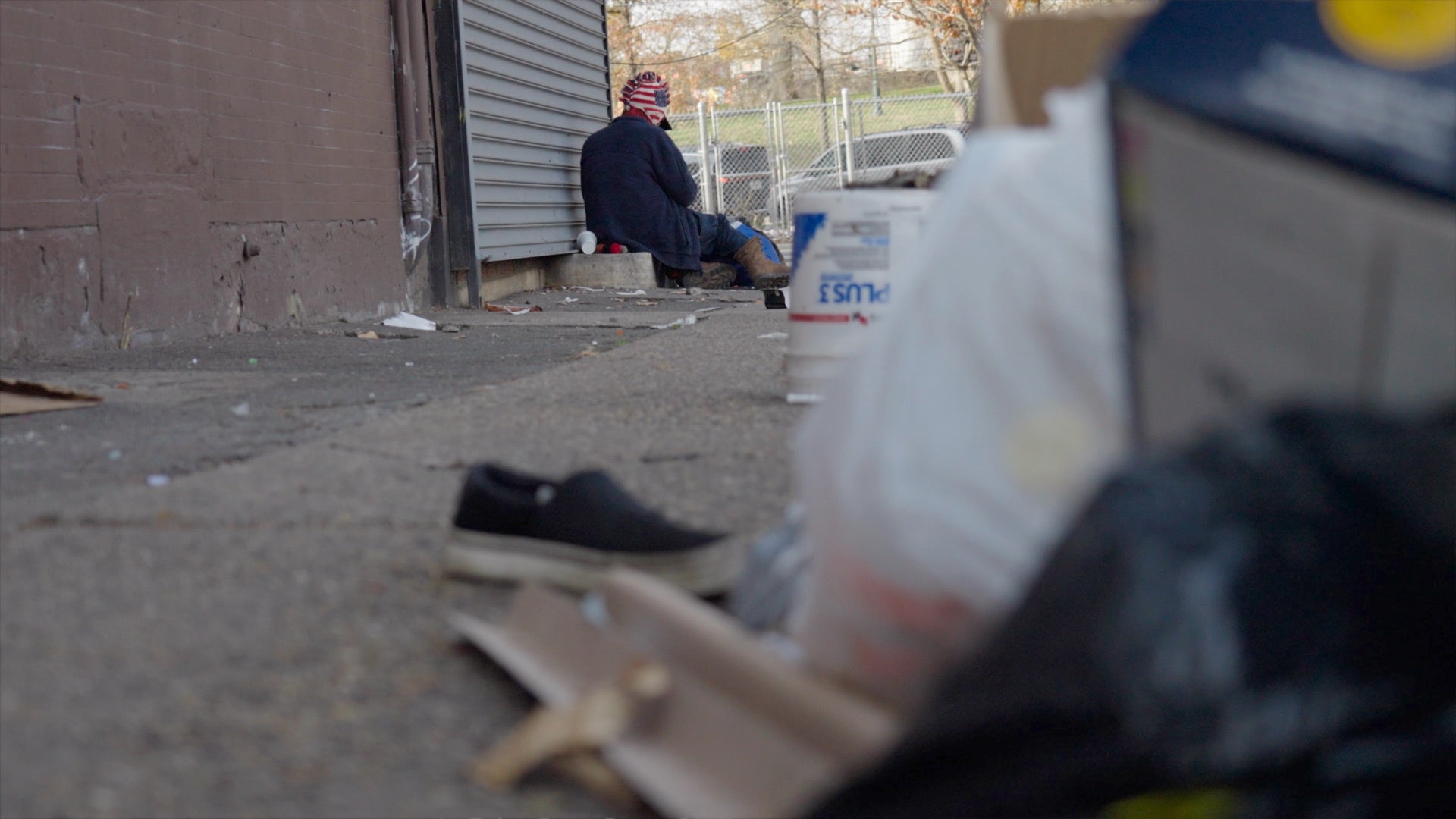
An addict sits on the corner in Kensington. The foreground is littered with trash and other junk — a common sight in the Philadelphia neighborhood. (Fox News)
WATCH: SAN FRANCISCO ACTIVIST EXPOSES BUS STOPS ‘HIJACKED’ AS ‘OPEN-AIR DRUG MARKETS’
"You see people with blood running down their neck all the time," Rodriguez said. "Looks like they got bit by a vampire."
"I see the drug addiction. You know, I see the drug dealing. I see the violence. I see the poverty," he said. "Most of all, I see pain."
From 2012 through 2016, Kensington’s average income was just under $12,670 — about half of the average salary in Philadelphia, a Drexel University study found in 2019. The violent crime rate, meanwhile, was about 30% higher than the rest of the city.
While driving around Kensington with Fox News, Rodriguez repeatedly stopped to check on people strewn out on the sidewalk. He’d whistle to them and tell them to get up.
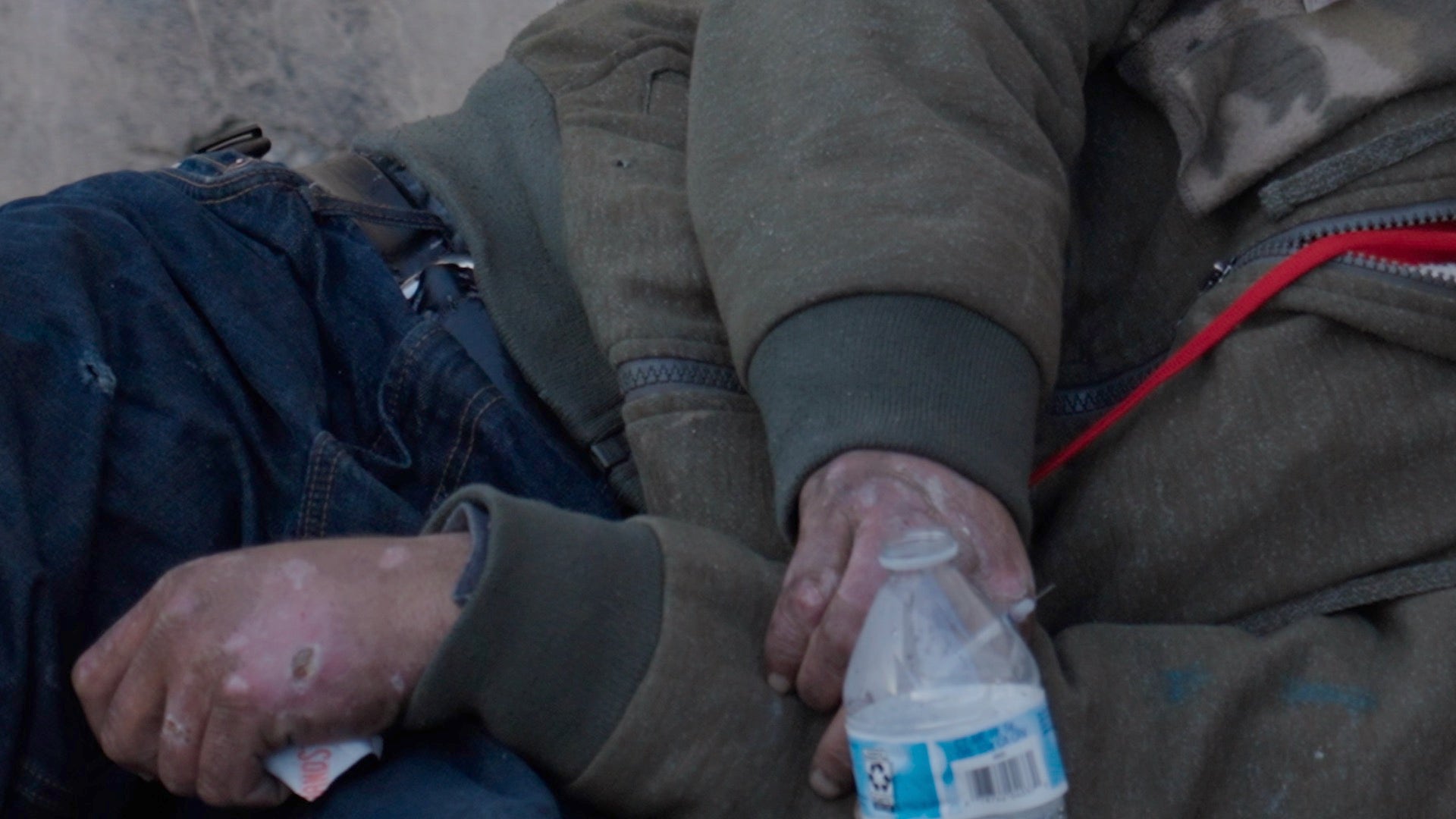
Rodriguez stirred an addict passed out on the sidewalk. An uncapped needle can be seen in his dirt-encrusted, scab-covered hand. (Fox News)
"Yo," Rodriguez said to one man. He whistled to get his attention. "You alright man? Gotta get up off the ground, brother."
The man was partially lying on a cane, still holding an uncapped needle in his dirt-embedded hands. Another syringe was held in place under his beanie, the plunger pointing down. As he woke up, he seemed slow to comprehend what was being said, pausing for several seconds before looking where Rodriguez pointed.
Next to him were what appeared to be rubber ties and a reusable grocery bag filled with clothes. A rolled-up pant leg exposed scabs, and a piece of paper partially stuck to his skin had dried blood on the underside.
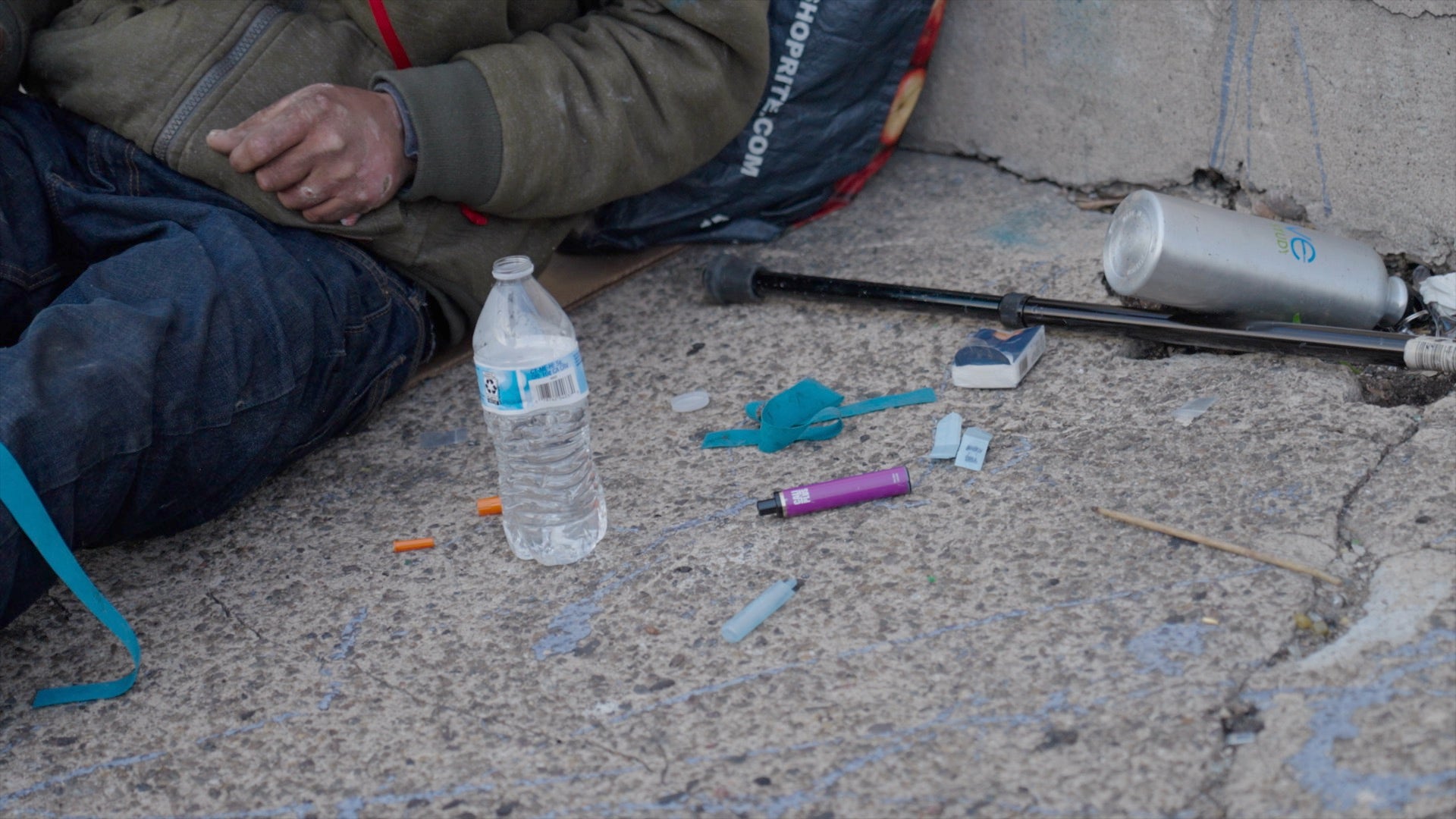
A vape and rubber ties lie next to the addict Rodriguez woke up. The cap to a needle can also be seen. All are common sights in Kensington. (Fox News)
One shoe was on, but the other rested near his head. His sock was half off.
Rodriguez lamented that people frequently see addicts merely as parts of Kensington’s landscape. Since he got sober in 2016, as part of his mission to humanize them, Rodriguez makes return trips to give out free haircuts in the northeast Philadelphia neighborhood.
He also films addicts’ testimonials and posts them to his YouTube channel, "Morals Over Money." Rodriguez hopes to remind people that the addicts in Kensington are human beings — and they’re suffering.
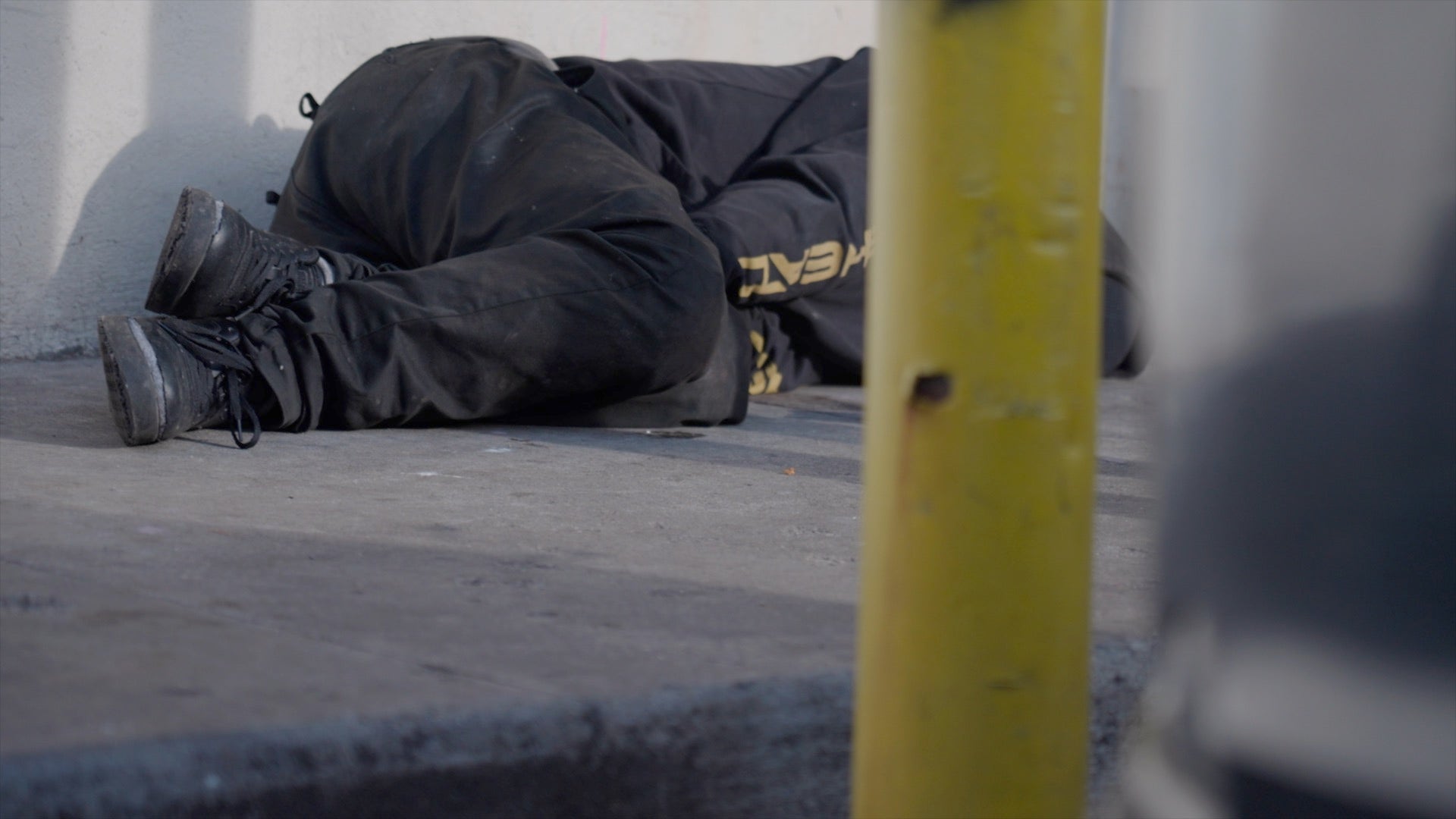
An addict lies on the sidewalk in Kensington. Rodriguez laments that they're seen as just parts of the neighborhood's landscape. (Fox News)
From selling drugs to abusing them
Rodriguez, 42, was born to heroin addicts in Brooklyn. He lived in an area he described as an "open-air drug market" until his mom moved him to Kensington when he was 8 years old, hoping for a better life.
But the Philadelphia neighborhood wasn’t much of an improvement.
"It sort of reminded me of what the neighborhood that I was born in was like," he said. "It was also an open-air drug market."
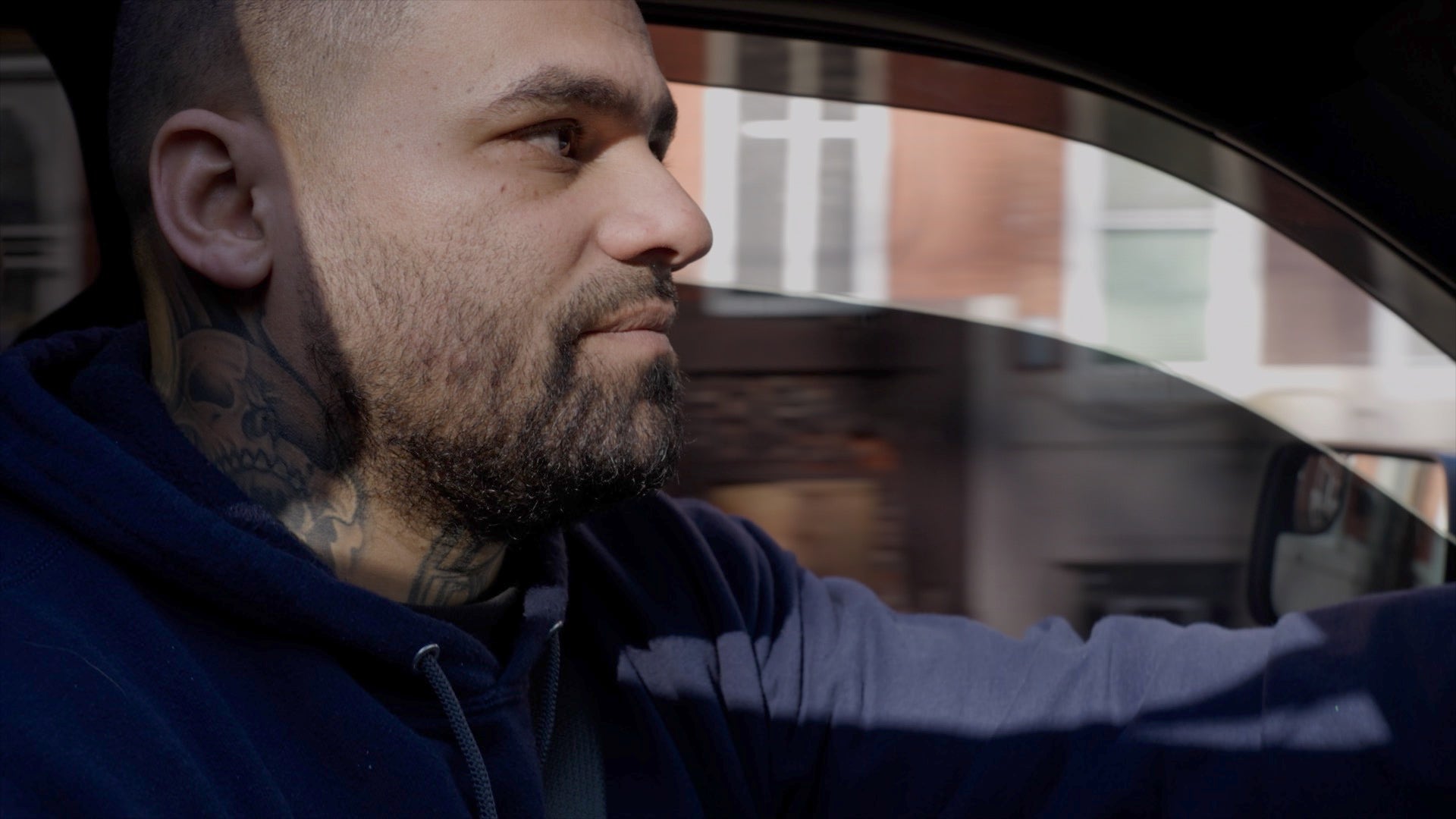
Rodriguez toured Kensington with Fox News. He described the neighborhood's plights and recounted some of the tragic events he witnessed — and experienced. (Fox News)
Kensington, sitting just west of the New Jersey border, includes an area nicknamed "needle park" because of the number of syringes covering the ground. The Mexican government used footage of open-air drug use in the neighborhood as part of an anti-drug video.
While data isn’t available specifically for Kensington, Philadelphia faced nearly 1,300 unintentional overdose deaths in 2021 — a 5% increase from the year prior, according to the city’s health department. More than 80% of those involved opioids like heroin and fentanyl.
Rodriguez started selling marijuana by the time he was 12 or 13. At first, he was just trying to make some extra cash to help his mom pay bills or buy clothes for school.
Eventually, he graduated to selling heroin after hocking a bag of the powder he'd found in his mom's pocket.
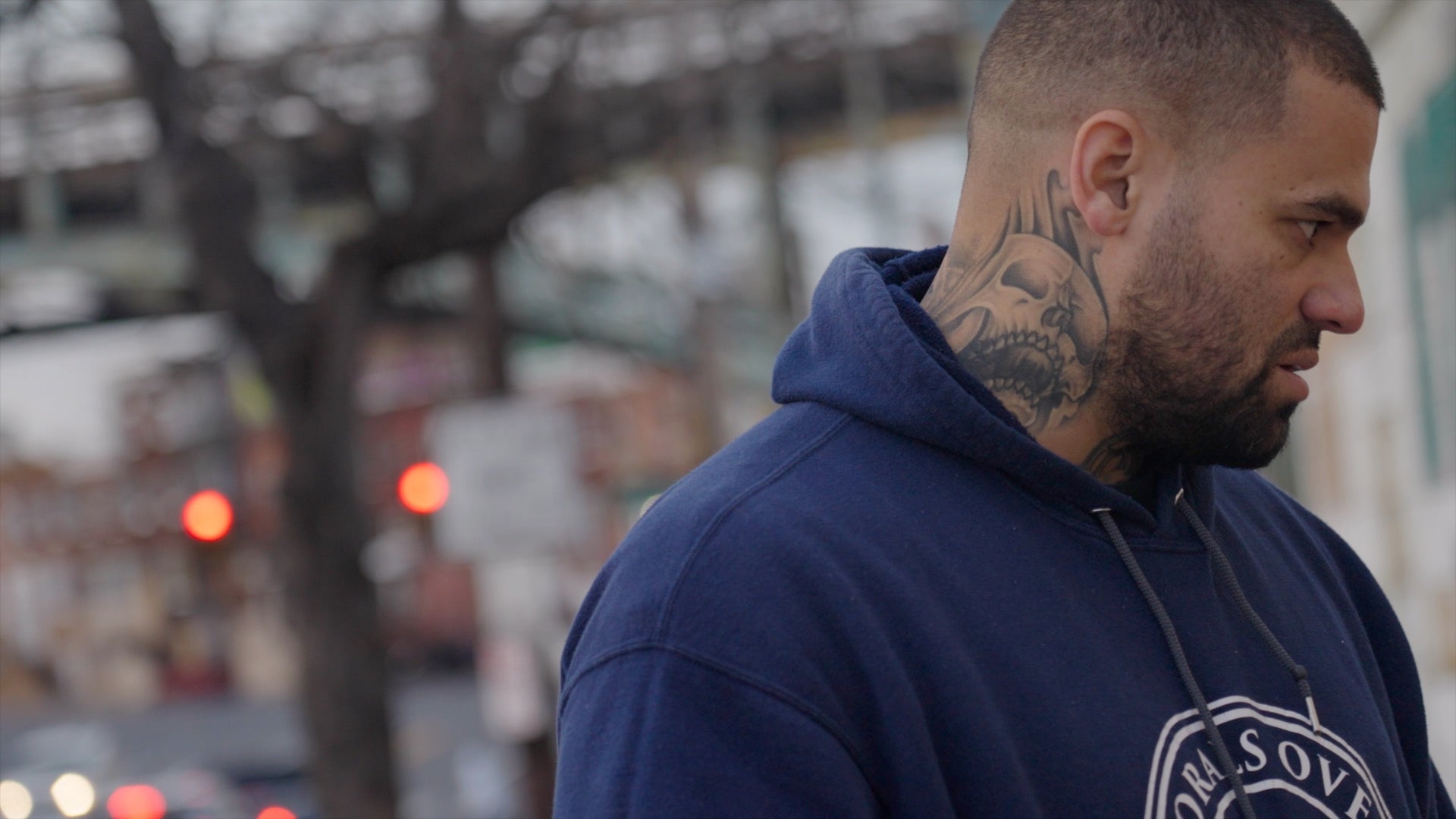
Rodriguez started selling marijuana to help his mom pay the bills, but eventually graduated to dealing heroin. Later, he became an addict himself. (Fox News)
But after his mom was killed in a car accident in 2004, Rodriguez himself slipped into addiction.
He went several sleepless nights, unable to get the image of his mom on the coroner’s slab out of his mind. Eventually, a family member who worked as a nurse gave Rodriguez three pills to calm him and to help him sleep.
"That quickly led to me taking Percocets," he told Fox News. "Percocets led to me sniffing heroin. Sniffing heroin led to me shooting heroin."
Rodriguez’s drug use continued until 2016. He had a brief stint of sobriety toward the end, but it wasn’t until after overdosing during a relapse that he stayed clean.
That’s when he spent a month in rehab. He sat in the front taking notes.
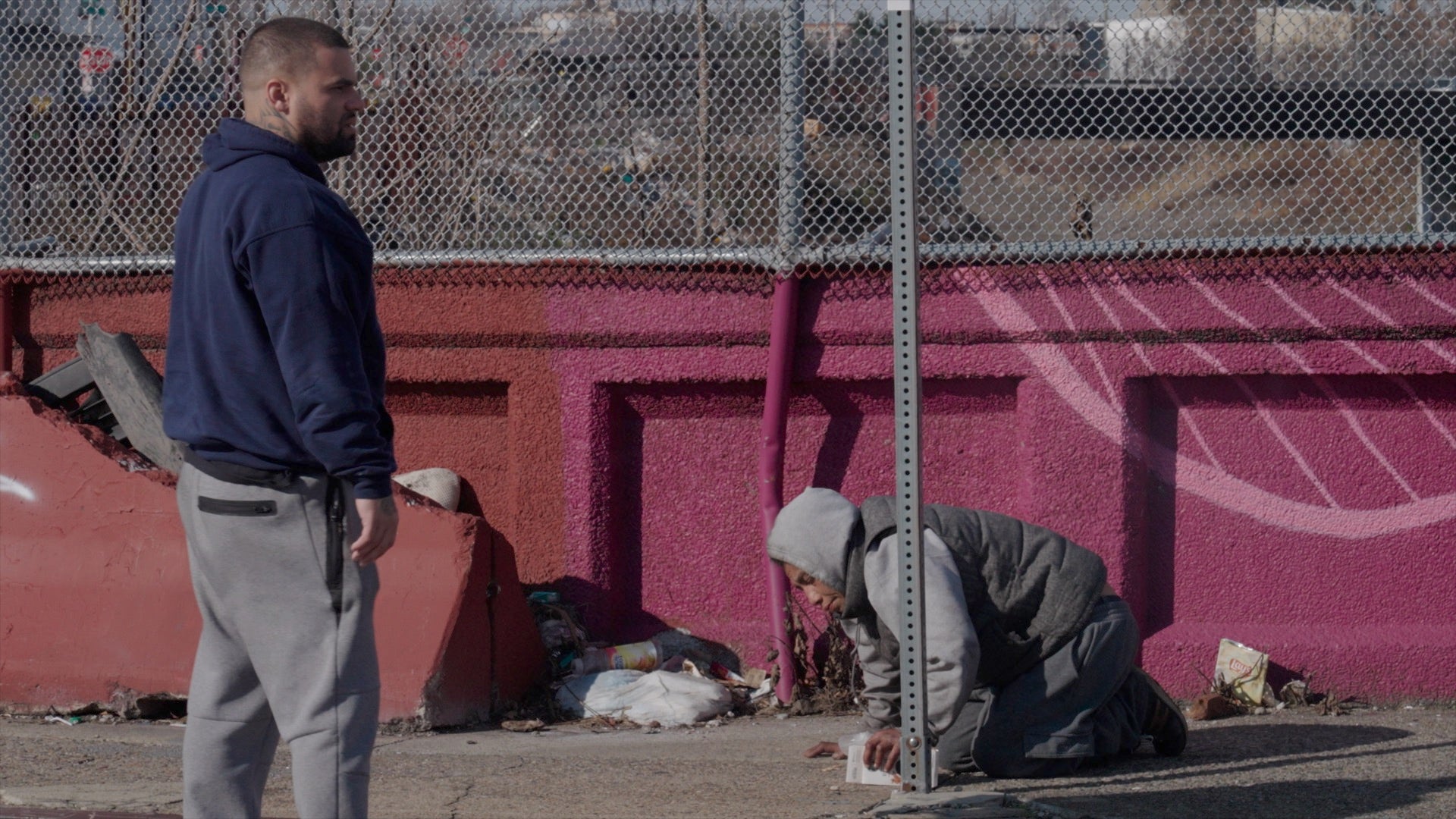
Rodriguez checks on an addict in Kensington. (Fox News)
‘She hadn't seen her son in four years’
Rodriguez started crying after hearing his daughter’s heartbeat for the first time. He’d shot up in his car before going into the doctor’s office.
"I realized that very shortly, there was a little baby that was going to be coming into that world that was relying on me," Rodriguez said. "And if she would have came that day, I would have been highly unfit to be her father."
He left Kensington the next day.
"I packed up my stuff and left my apartment," Rodriguez told Fox News. "I took my clothes and left all my furniture there."
"I told myself, ‘I have to leave. If I don't leave, I might not be alive to leave the next time that I want to,’" he said.
He picked up odd jobs and started cutting hair at people’s houses before opening up his own barbershop, Against the Grain, in Milton, Pennsylvania, in 2013.
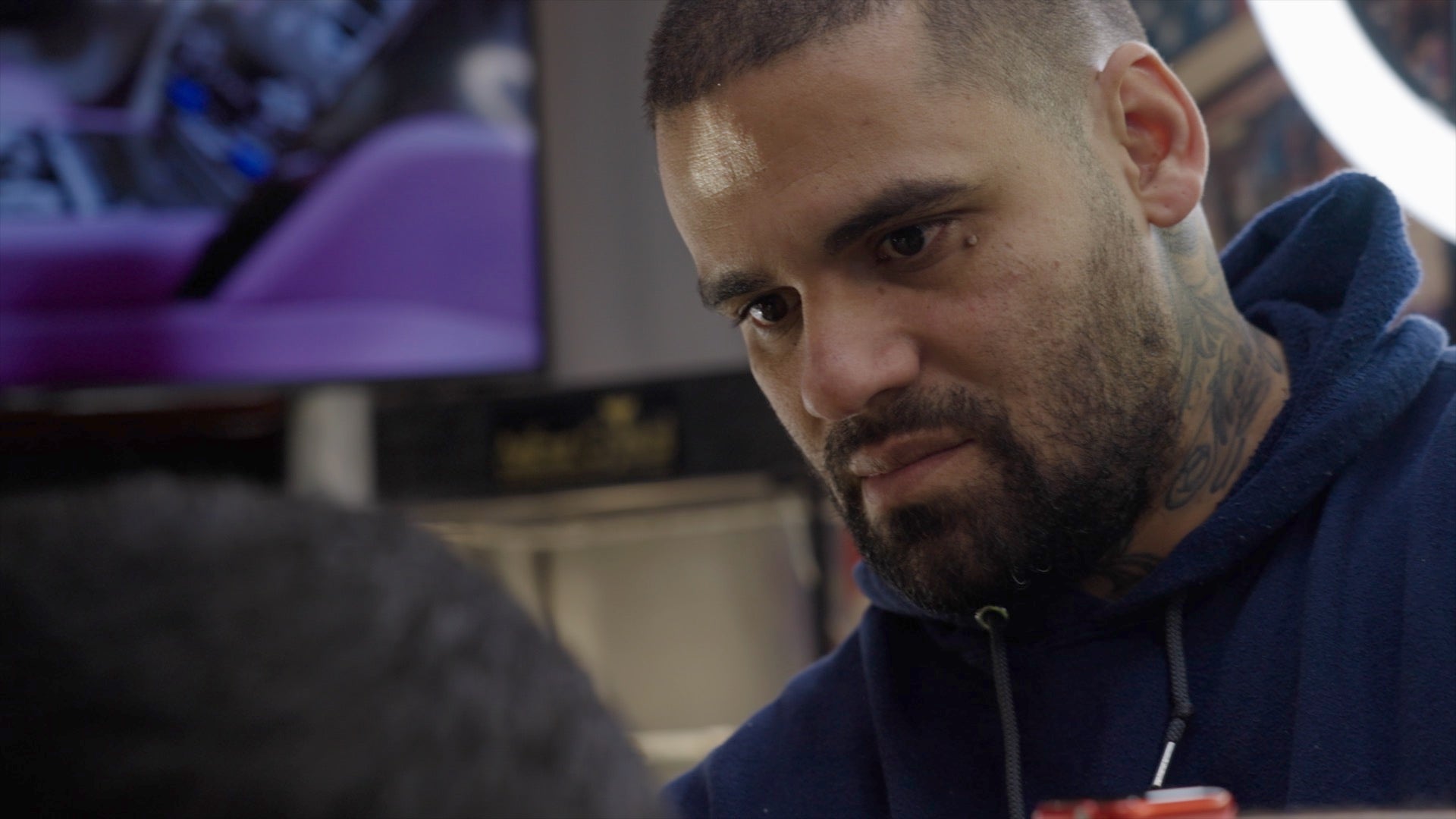
After learning he was going to be a father, Rodriguez left Kensington and took on odd jobs, including cutting hair. He ultimately opened his own shop in Milton, Pennsylvania, but Rodriguez still returns to cut addicts' hair in Kensington. (Fox News)
Now, through haircuts and YouTube videos, Rodriguez is on a mission to humanize addicts. He feels his unique experience as a recovering drug user helps him relate.
Rodriguez recollected a moment where he was high and smoking a cigarette on a porch. A woman saw him and grabbed her two children and crossed the street.
"It hurt because I knew she felt as though she was trying to protect her kids," Rodriguez said. "That always stuck in my mind and bothered me."
That moment inspired him go beyond simply getting clean — he wanted to help people and show them that they’re loved.
"When I go to Kensington and I give somebody a haircut, I'm not worried about touching them," Rodriguez told Fox News. "I'm not worried about how dirty they are. I'm not worried about if they stink. I'm not worried about if they're nodding off."
"I still see a human being under there because I know at one time that was me," he said.
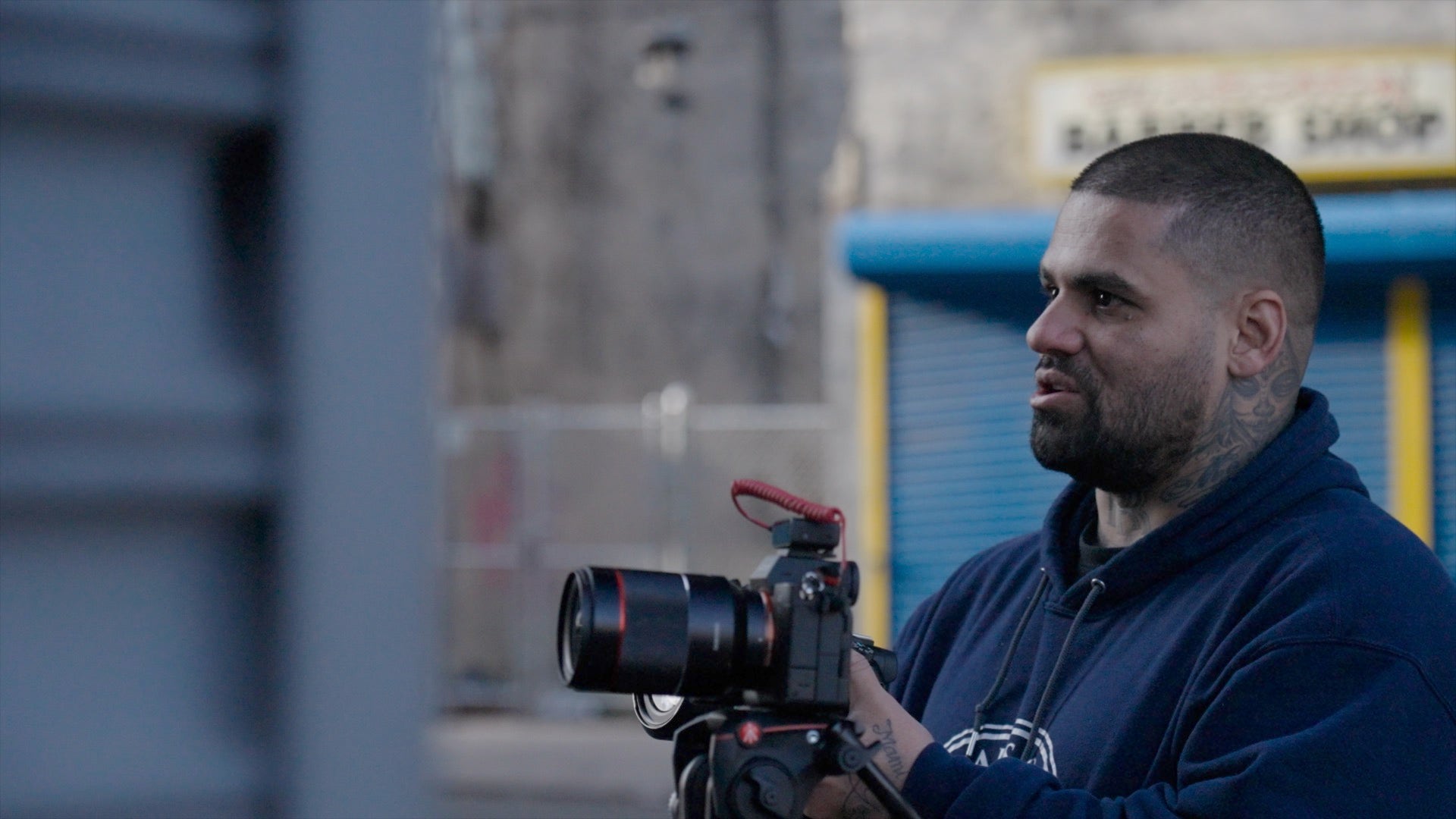
Rodriguez films addicts' testimonials in an effort to remind viewers that they're still people — and they're suffering. (Fox News)
One day, someone shot a Facebook Live video of a man who was receiving a haircut from Rodriguez. That night, the man’s mother reached out.
"She hadn't seen her son in four years," Rodriguez said. "She didn't know if he was alive or dead."
He realized there were more family members just like that mother, worrying about their children or loved ones, not knowing if they were alive. So Rodriguez started posting addicts’ testimonials to his YouTube channel.
As he toured Kensington in his car with Fox News, Rodriguez reflected on his overdose. All it took was one sniff.
CLICK HERE TO GET THE FOX NEWS APP
"I woke up in the hospital three days later," Rodriguez said as he drove. "For me, that’s why I see people overdose and I see people stretched out and laid out and I wanna go there and just be like ‘yo, you alright?’"
"That’s all it took for me to completely change my life, 180 degrees," he said, snapping his fingers. "Maybe there’s other people that are like that also. And maybe not, but…"
Rodriguez trailed off. He continued driving, looking around the streets lined with trash, addicts and despair — streets that had been home to so much pain.
